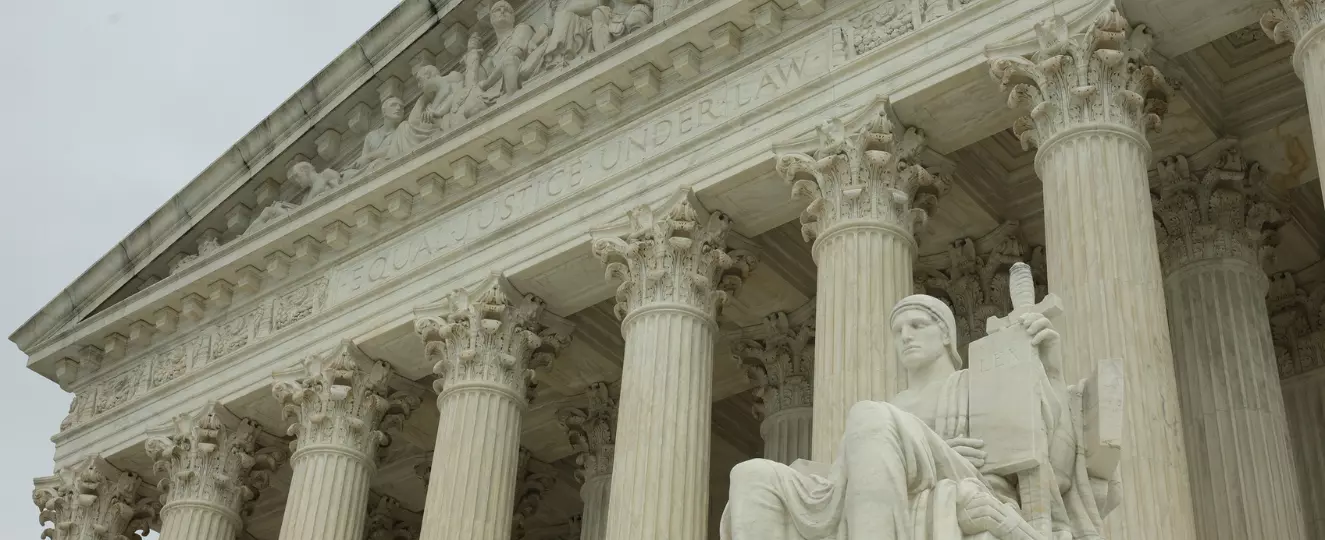
The Supreme Court of the United States opened up the new term on October 7, 2024. The Court is currently slated to address 40 cases this term. Oral arguments will be heard for nine cases in October and an additional seven in November. Decisions are expected to start rolling out as soon as June 2025. We will be paying close attention to the cases most anticipated to impact the labor and employment landscape which include:
E.M.D. Sales Inc. v. Carrera: Is an employer’s burden of proof “preponderance of the evidence” or “clear and convincing evidence” when proving employee classification under the Fair Labor Standards Act (FLSA)?
- When an employee claims they were misclassified as an exempt employee under the FLSA, the employer bears the burden of proving the individual was properly classified. The Fourth Circuit created a circuit-split when it found the company failed to present “clear and convincing evidence” that the employee was an exempt employee. Six other circuits have addressed this issue, and all found the employer’s burden of proof is “preponderance of the evidence” standard. Under this standard, evidence only needs to be more likely to be true than not true. On the other hand, “clear and convincing” is a higher standard that requires the evidence be substantially more likely to be true than not true.
Lackey v. Stinnie: Is receiving a preliminary injunction based on the likelihood of success enough to be considered a prevailing party when recovering attorney’s fees?
- Virginia motorists claim their due process rights were violated when their driver’s licenses were suspended after a failure to pay court fees and fines. The Plaintiffs were awarded a preliminary injunction after the court found they were likely to succeed on the merits of the claim. While the case was being litigated, it became moot when Virginia repealed the law in question. Plaintiffs claim they are the prevailing party based on the “likelihood of success” determination and are therefore entitled to attorney’s fees. While this case isn’t a traditional employment issue, the decision could impact employment racial discrimination cases filed under 42 U.S.C. § 1981, a federal law that prohibits racial discrimination when drafting and enforcing contracts.
Medical Marijuana, Inc. v. Horn: Can CBD companies be held liable for failed drug tests?
- A truck driver brought a case against a CBD company for falsely marketing its product after he failed a drug test and lost his job as a result. The driver claims he used a product that was marketed as only containing CBD, the non-psychoactive component of cannabis that is legal in most places. The presence of CBD is not shown on a drug test. However, the driver tested positive for THC on his drug test and was fired for violating company policy. The driver brought the case under the Racketeer Influenced and Corrupt Organizations Act (RICO), which allows individuals to bring certain fraud claims. Federal circuits are currently split regarding whether job and wage loss meets the “injury to business or property” requirement when bringing a civil action under RICO.
Stanley v. City of Sanford, Fla.: Does the Americans with Disabilities Act (ADA) permit former employees to file a lawsuit based on discriminatory post-employment policies?
- The plaintiff was a firefighter for two decades before she took an early disability retirement due to a Parkinson’s diagnosis. When she began working, the city’s policy was to offer lifelong health insurance coverage for employees who retired due to a qualified disability. After her retirement, Plaintiff found out the policy had changed and only provided two years of free health insurance coverage. The Plaintiff sued, stating the reduction was discriminatory and violated the ADA. The Eleventh Circuit ruled the plaintiff lacked standing to file this lawsuit because the ADA only applies to job applicants and employees, not retirees. There is currently a circuit split on this issue.
Williams v. Washington: Must state administrative remedies be exhausted before federal civil rights claims are brought in state court?
- Alabama residents who applied for unemployment benefits during COVID-19 alleged the handling of their claims violated the Social Security Act and their constitutional due process rights. Plaintiffs sued under 42 U.S.C. § 1983, a federal law that allows individuals to sue state government officials for violating their civil rights. The Alabama Supreme Court found that state law requires plaintiffs to exhaust all administrative remedies with the Alabama Department of Labor before filing a lawsuit. The Plaintiffs claim 42 U.S.C. § 1983 has no administrative remedy exhaustion requirement.
Bricker Graydon’s Labor & Employment team will keep you updated as decisions are released.

